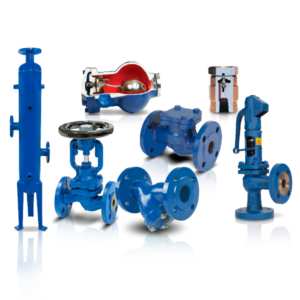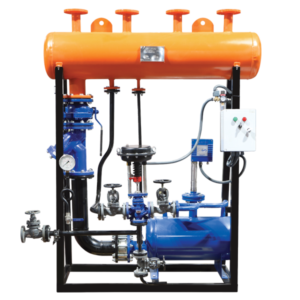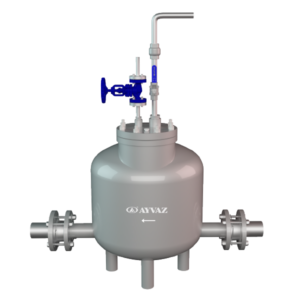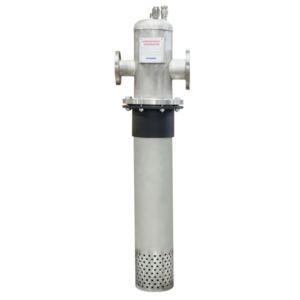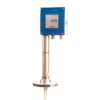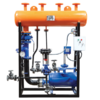AFBT Flash Vessel Tank Systems
Things To Be Careful About Choosing Flash Vessel Tank: Saturated steam, which evaporates from the heat transfer surfaces, is converted into condensate at the same pressure. The enthalpy of saturated water at 1 bar pressure is 505 kJ / kg. If the condensate at 6 bar pressure is released by 1 bar the energy output will be 697-505 = 192 kJ / kg. This energy evaporates some of the condensate to steam.This steam is Flash Steam.
Why Flash Steam is Important?
It includes too much energy and it can be mount to different installation areas.If Flash Steam drains to the atmosphere there will be waste energy and effeciency lost.
Acquiring Flash Steam
When the water is heated under atmospheric pressure, the temperature rises up to 100 °C.
The heat to be given does not increase the temperature, but it converts water to steam.
The heat absorbed by the water during the rising of the temperature to the boiling point is called "sensible heat" or “saturated liquid heat”. At the same temperature, the heat required to turn the water at the boiling point into steam is called "latent heat".
The amount of heat required to increase 1 kg of water temperature by 1 ° C in the atmospheric pressure is 4,186 kJ
The saturated liquid temperature of the condensate at steam temperature and pressure of 8 bar is 721 kJ / kg (saturated steam table).
If this condensate is leaked to a 2 bar tank, the heat value (saturated liquid temperature) drops to 504 kJ / kg.
This is 721-504 = 217 kJ/kg of excess condensate. The percentage of the condensate to be transformed into the steam can be calculated as follows.
% Flash Steam = (Q1-Q2 / q) x100Q1: Saturated liquid heat at high pressure before dischargeQ2: Saturated liquid heat of the condensate at low pressureq: The latent heat of the steam at low pressure where the condensate is drained % Flash Steam = (721-504/2201)x100 = 9.6%That is, if there is a condensate of 3000 kg;Flash Steam = 3000x9,6% = 288 kg/h
Flash Steam Tanks are used to separate the flash steam from the condensate water.
In order for the flash steam to move towards the top outlet at the correct speed, the diameter of the steam tank must be appropriate. This speed is about 3-5 m/s and the velocity at which water droplets can reach the bottom of the tank. In order to be efficient, the condensate inlet to the tank should be one-third of the tank neck below. The diameter of the flash steam tank should be a diameter that allows the passage of the condensate without coming into turbulence.
If the difference between high and low pressure is small.
The amount of steam is less than the amount of condensate. Flash steam outlet pipe selecting the diameter according to the speed will cause the tank to remain small. in which case the tank must be selected to be two diameters larger.
Choosing Flash Vessel
1- Maximum condensation amount is required to obtain maximum flash steam.
For this reason, the capacity of steam traps must be selected carefully, taking into consideration the counterpressure. It should also be noted that in systems where temperature control valves are used, the valve will be closed and the pressure will drop.
2- The amount of use of flash steam systems must be equal to the amount of flash steam.
Steam can be provided by pressure drop from a higher pressure steam line when the flash steam is missing. If flash steam is excessive, some of the flash steam must be thrown out. Also, since the flash used in heating will not be needed in summer, a heat recovery system will not be necessary.
Therefore, the amount of flash steam required must be prepared.
3- It is beneficial if the system to be used with flash steam is close to the outlet of the condensate at high pressure. The transport of low-pressure condensate requires large diameters and will increase investment costs. In addition, the heat losses that will occur on large pipe diameters will reduce the benefits of flash buckets.
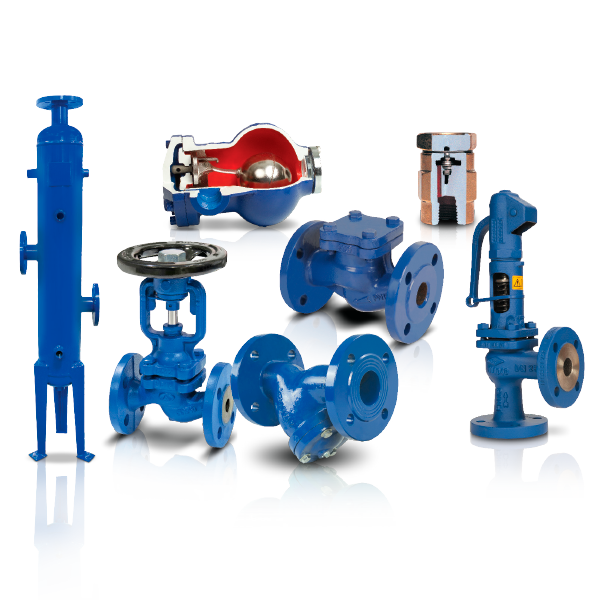
Documents
AYVAZ ENERGY RECOVERY SYSTEMS & DEAERATORS
Inquiry Form
Please send us your inquiry using our contact form and we will contact you immediately.


